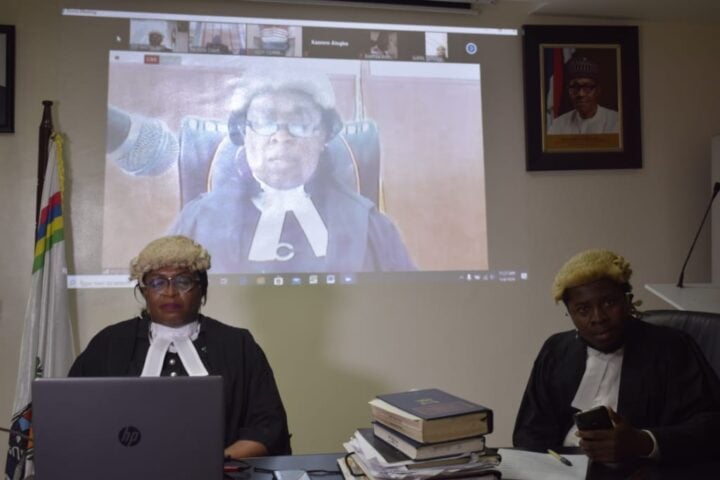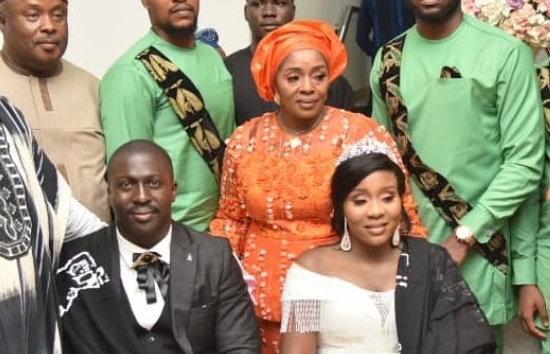A virtual court proceeding in Lagos. Photo: Lagos state ministry of justice
The supreme court has struck out two different suits challenging the conduct of virtual court proceedings in Nigeria.
In the suit marked SC/CV/260/2020, Moyosore Onigbanjo, attorney-general (AG) of Lagos state, asked the court to determine if cases heard over digital platforms are constitutional.
According to the suit, Onigbanjo wants a decision from the apex court on “whether having regard to Section 36(1), (3) and (4) of the 1999 Constitution (as amended) use of technology by remote hearings of any kind, whether by Zoom, Microsoft Teams, WhatsApp, Skype or any other audiovisual or video-conference platform by the Lagos state high court or any other courts in Nigeria in aid of hearing and determination of cases are constitutional”.
At the court session on Tuesday, the attorney-general told the court that the national assembly is already taking steps to amend the constitution to accommodate virtual court sittings.
Advertisement
He said the assembly lacks the powers to do so as section 274 of the constitution gives powers to the heads of courts to regulate the rules of court.
Delivering the ruling, the seven-man panel of justices of the apex court held that the suit is “immature and speculative”.
The panel said since the bill is yet to go through the second and third reading at the national assembly and is yet to be sent to all assemblies of the 36 states, the court cannot decide on it.
Advertisement
“Can we at this stage speculate the outcome of the national assembly? Even if we can, the amendment must have occurred before the suit matures,” the court held.
“Even the devil knows not the intent of a man. Your suit is speculative and it is a fundamental law that we don’t act on speculations. Wait for them to pass the law and see if it will affect your own rules of court.”
In response, Onigbanjo said: “Having listened and taken the hint of this court, I humbly withdraw the application.”
Giving its ruling, the panel added that “as of today, virtual court sitting is constitutional. This suit is speculative and on that basis, it is struck out.”
Advertisement
In the second suit, Wale Fapounda, AG of Ekiti state, had challenged the constitutionality of the directive issued by Abubakar Malami, attorney-general of the federation (AGF), to the heads of courts at federal and state levels to adopt virtual court sittings in courts.
He, however, withdrew his suit after taking the hint that his suit which is similar to the first, is speculative.
Add a comment






